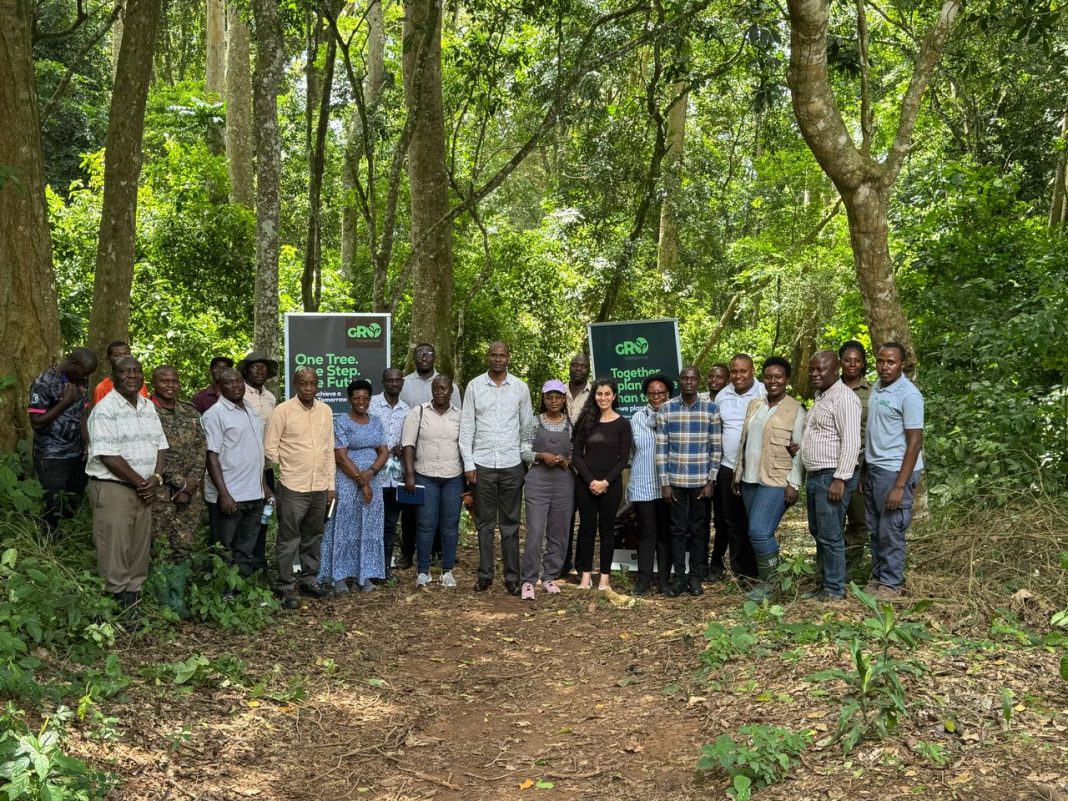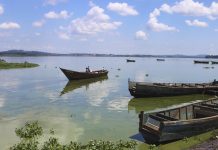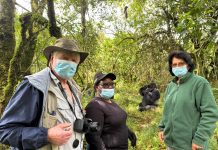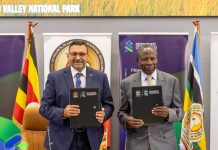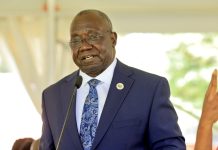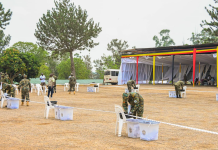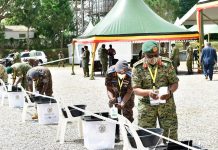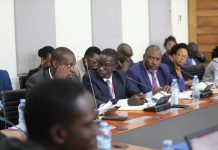The National Forestry Authority (NFA), Gro Foundation, and the Inter-Religious Council of Uganda (IRCU) convened at Mpanga Central Forest Reserve (CFR) for a high-level dialogue to explore a potential partnership aimed at forest restoration, protection, and sustainable community engagement.
Speaking during the meeting, NFA Acting Executive Director, Mr. Stuart Maniraguha, emphasized the ecological importance of Mpanga CFR, noting its proximity to urban areas necessitates heightened conservation efforts. He highlighted the need to integrate livelihood initiatives for forest-adjacent communities as a strategic approach to reducing forest encroachment.

“Mpanga CFR deserves special attention. To protect this forest, we must also empower the communities that live around it. When people have alternative sources of livelihood, they are less likely to depend on the forest for survival,” Mr. Maniraguha stated. He also expressed concern over the growing trend of “photo planting”—tree planting activities done merely for publicity stressing instead the need for “deliberate tree growing” with long-term impact.
Mr. Maniraguha assured representatives from Gro Foundation and IRCU of NFA’s full commitment to the proposed collaboration, and commended NFA’s field teams for their dedication and professionalism in protecting forest reserves like Mpanga despite increasing population pressures.
Gro Foundation Executive Director, Mr. Laban Musinguzi, shared the foundation’s broad experience in environmental conservation across East Africa. He announced that Mpanga CFR has been selected as a pilot site for Gro’s large-scale afforestation initiative, which aims to plant five million trees in 2025, contributing to a long-term target of 250 million trees over the next 15 years.
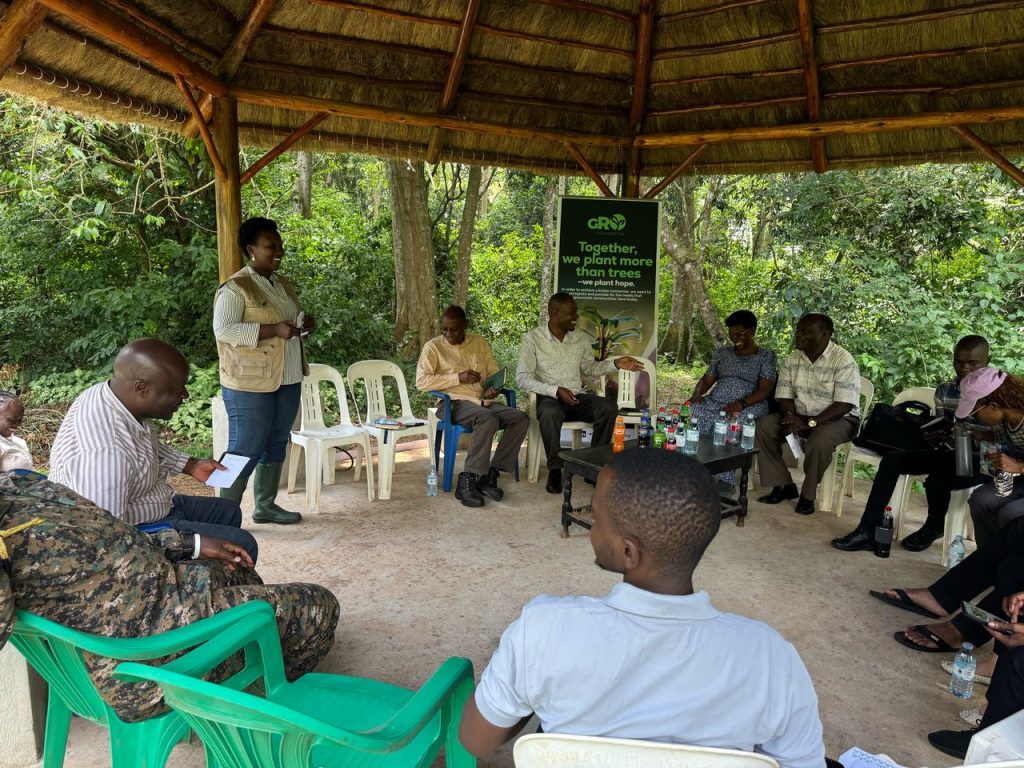
“We are ready to support the conservation efforts under NFA’s leadership and framework. Mpanga is just the beginning,” Mr. Musinguzi affirmed.
The IRCU delegation underscored the council’s vital role in mobilizing communities through its extensive network of religious institutions, which reach over 20 million Ugandans. They highlighted the significance of values-based advocacy in promoting environmental stewardship and behavioral change at the grassroots level.
The dialogue concluded with consensus on the need for a formal partnership. It was agreed that the collaboration will be formalized through a Memorandum of Understanding (MoU), with implementation planning to commence immediately. Key focus areas include forest restoration and protection, improvement of community livelihoods, provision of high-value tree seedlings, and extensive public education and awareness campaigns on conservation.
Established in 1932 and covering 453 hectares, Mpanga Central Forest Reserve is a vital tropical high forest ecosystem. It serves as a catchment for streams, wetlands, and protected wells that benefit eight surrounding villages. The forest is also recognized for its rich biodiversity, making it a significant site for ecotourism and scientific research.


